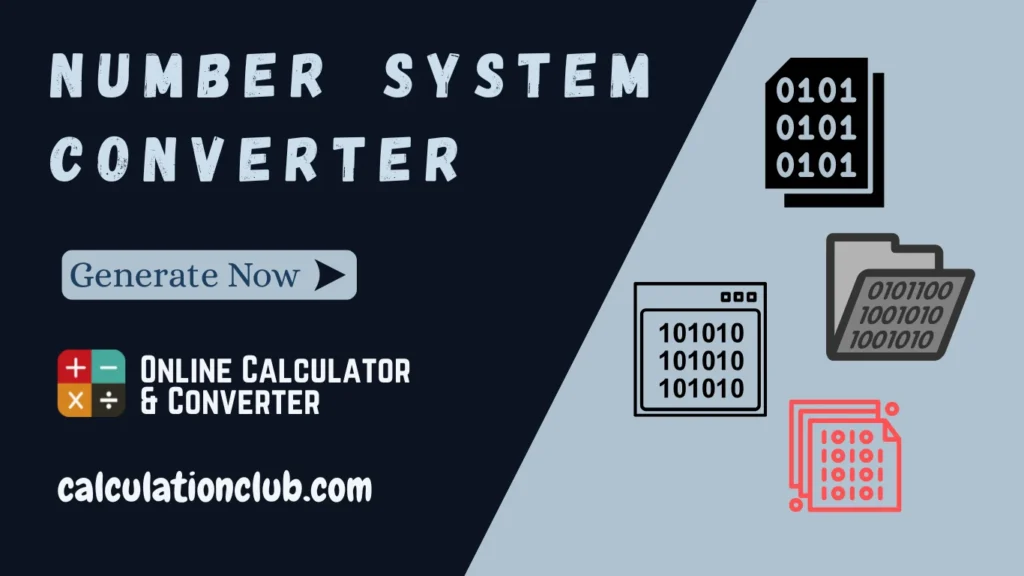Data Transfer Rate Converter
Converting data transfer rates—like megabits per second, gigabytes per second, or kibibits per second—can quickly get complicated, especially when dealing with binary vs. decimal prefixes and bits vs. bytes. Whether you’re evaluating internet speeds, network bandwidth, or data streaming rates, manual calculations can lead to confusion and mistakes. That’s why our online Data Transfer Rate Converter tool is designed to offer instant, precise, and effortless conversions across all major data rate units.
The Data Transfer Rate Converter is a user-friendly online tool created to handle complex conversions between different data transmission units. Whether you’re a network engineer analyzing throughput, a developer benchmarking performance, or a user comparing internet plans, this tool eliminates the guesswork. Simply enter a value, and it will immediately convert across all supported units—improving accuracy, saving time, and enhancing productivity.
Our Data Transfer Rate Converter supports precise conversions between the following 22 units of data transmission speed:
- Bit per second (bps)
- Kilobit per second (kbps)
- Kibibit per second (Kibps)
- Megabit per second (Mbps)
- Mebibit per second (Mibps)
- Gigabit per second (Gbps)
- Gibibit per second (Gibps)
- Terabit per second (Tbps)
- Tebibit per second (Tibps)
- Petabit per second (Pbps)
- Pebibit per second (Pibps)
- Byte per second (Bps)
- Kilobyte per second (kBps)
- Kibibyte per second (KiBps)
- Megabyte per second (MBps)
- Mebibyte per second (MiBps)
- Gigabyte per second (GBps)
- Gibibyte per second (GiBps)
- Terabyte per second (TBps)
- Tebibyte per second (TiBps)
- Petabyte per second (PBps)
- Pebibyte per second (PiBps)
What is Data Transfer Rate?
Data transfer rate refers to the amount of digital data that is moved from one place to another in a given amount of time. It is a key metric in networking, internet speed testing, server performance, and streaming services. These measurements are typically expressed in either bits per second (bps) or bytes per second (Bps), and may use standard (decimal) or binary prefixes depending on the context.
Understanding the difference between megabits and megabytes, or gigabits and gibibits, is essential when interpreting bandwidth, data usage, and speed limits. Our converter handles these variations for you with complete accuracy.
Here are some useful conversion references:
- 1 Byte = 8 Bits
- 1 Kilobit = 1,000 Bits | 1 Kibibit = 1,024 Bits
- 1 Megabyte = 1,000,000 Bytes | 1 Mebibyte = 1,048,576 Bytes
- 1 Gigabit = 1,000,000,000 Bits | 1 Gibibit = 1,073,741,824 Bits
With the Data Transfer Rate Converter, there’s no need to memorize formulas or struggle with binary/decimal confusion. Just enter a value and get instant, reliable results—ideal for professionals, students, and everyday users alike.

What Are the Supported Units in Our Data Transfer Rate Converter?
Our Data Transfer Rate Converter includes a wide range of units used in networking, data communication, storage systems, and internet speed tests. Whether you’re analyzing upload/download speed, server bandwidth, or disk read/write throughput, this tool helps convert between every major unit, from bits per second to petabytes per second.
Below is a complete list and explanation of the supported data transfer rate units available in our tool for easy and precise conversions:
1. Bit per second (bps)
Bit per second is the base unit of data rate, representing one bit transmitted every second.
2. Kilobit per second (kbps)
Kilobit per second equals 1,000 bits per second and is commonly used for internet bandwidth and streaming speeds.
3. Kibibit per second (Kibps)
Kibibit per second equals 1,024 bits per second and is used in binary computing contexts.
4. Megabit per second (Mbps)
Megabit per second is 1,000,000 bits per second. It’s the standard for measuring home and mobile internet speed.
5. Mebibit per second (Mibps)
Mebibit per second equals 1,048,576 bits per second and is used in precise data calculations.
6. Gigabit per second (Gbps)
Gigabit per second equals 1,000,000,000 bits per second and is common in high-speed networks and fiber-optic internet.
7. Gibibit per second (Gibps)
Gibibit per second equals 1,073,741,824 bits per second and is used in technical documentation.
8. Terabit per second (Tbps)
Terabit per second equals 1 trillion bits per second and is used in large-scale data centers or infrastructure.
9. Tebibit per second (Tibps)
Tebibit per second equals 1,099,511,627,776 bits per second.
10. Petabit per second (Pbps)
Petabit per second equals 1,000,000,000,000,000 bits per second.
11. Pebibit per second (Pibps)
Pebibit per second equals 1,125,899,906,842,624 bits per second.
12. Byte per second (Bps)
Byte per second equals 8 bits per second. It’s used to measure download/upload speeds in some systems.
13. Kilobyte per second (kBps)
Kilobyte per second equals 1,000 bytes per second (8,000 bits per second).
14. Kibibyte per second (KiBps)
Kibibyte per second equals 1,024 bytes per second.
15. Megabyte per second (MBps)
Megabyte per second equals 1,000,000 bytes per second (8,000,000 bits per second).
16. Mebibyte per second (MiBps)
Mebibyte per second equals 1,048,576 bytes per second.
17. Gigabyte per second (GBps)
Gigabyte per second equals 1 billion bytes per second (8 Gbps).
18. Gibibyte per second (GiBps)
Gibibyte per second equals 1,073,741,824 bytes per second.
19. Terabyte per second (TBps)
Terabyte per second equals 1 trillion bytes per second.
20. Tebibyte per second (TiBps)
Tebibyte per second equals 1,099,511,627,776 bytes per second.
21. Petabyte per second (PBps)
Petabyte per second equals 1 quadrillion bytes per second.
22. Pebibyte per second (PiBps)
Pebibyte per second equals 1,125,899,906,842,624 bytes per second.
Data Transfer Rate Conversion Formulas
| From | To | Multiply By |
| 1 Byte/second | Bits/second | 8 |
| 1 Kilobyte/second | Bits/second | 8,000 |
| 1 Kibibyte/second | Bits/second | 8,192 |
| 1 Megabyte/second | Bits/second | 8,000,000 |
| 1 Mebibyte/second | Bits/second | 8,388,608 |
| 1 Gigabyte/second | Bits/second | 8,000,000,000 |
| 1 Gibibyte/second | Bits/second | 8,589,934,592 |
| 1 Terabyte/second | Bits/second | 8 × 10¹² |
| 1 Tebibyte/second | Bits/second | 8.796 × 10¹² |
| 1 Petabyte/second | Bits/second | 8 × 10¹⁵ |
| 1 Pebibyte/second | Bits/second | 9.007 × 10¹⁵ |
| 1 Kilobit/second | Bits/second | 1,000 |
| 1 Kibibit/second | Bits/second | 1,024 |
| 1 Megabit/second | Bits/second | 1,000,000 |
| 1 Mebibit/second | Bits/second | 1,048,576 |
| 1 Gigabit/second | Bits/second | 1,000,000,000 |
| 1 Gibibit/second | Bits/second | 1,073,741,824 |
| 1 Terabit/second | Bits/second | 1 × 10¹² |
| 1 Tebibit/second | Bits/second | 1.1 × 10¹² |
How to Convert Data Transfer Rates? – Explained with Examples
Data transfer rate conversion is essential in networking, cloud computing, streaming, and data management. Whether you’re analyzing bandwidth, download speeds, or hardware specifications, converting between bits and bytes across multiple scales is crucial. Below are popular conversions explained with formulas and examples.
1. How to Convert Kilobits per Second to Bits per Second?
To convert kilobits per second (kbps) to bits per second (bps), multiply by 1,000. Formula: bps = kbps × 1,000 Example: 5 kbps × 1,000 = 5,000 bps
2. How to Convert Kibibits per Second to Bits per Second?
To convert kibibits per second (Kibps) to bits per second, multiply by 1,024. Formula: bps = Kibps × 1,024 Example: 10 Kibps × 1,024 = 10,240 bps
3. How to Convert Megabits per Second to Kilobits per Second?
To convert Mbps to kbps, multiply by 1,000. Formula: kbps = Mbps × 1,000 Example: 8 Mbps × 1,000 = 8,000 kbps
4. How to Convert Mebibits per Second to Kibibits per Second?
To convert Mibps to Kibps, multiply by 1,024. Formula: Kibps = Mibps × 1,024 Example: 2 Mibps × 1,024 = 2,048 Kibps
5. How to Convert Gigabits per Second to Megabits per Second?
To convert Gbps to Mbps, multiply by 1,000. Formula: Mbps = Gbps × 1,000 Example: 3 Gbps × 1,000 = 3,000 Mbps
6. How to Convert Bytes per Second to Bits per Second?
To convert bytes per second (Bps) to bits per second (bps), multiply by 8. Formula: bps = Bps × 8 Example: 100 Bps × 8 = 800 bps
7. How to Convert Megabytes per Second to Megabits per Second?
To convert MBps to Mbps, multiply by 8. Formula: Mbps = MBps × 8 Example: 20 MBps × 8 = 160 Mbps
8. How to Convert Gibibytes per Second to Gibibits per Second?
To convert GiBps to Gibps, multiply by 8. Formula: Gibps = GiBps × 8 Example: 4 GiBps × 8 = 32 Gibps
9. How to Convert Terabits per Second to Gigabits per Second?
To convert Tbps to Gbps, multiply by 1,000. Formula: Gbps = Tbps × 1,000 Example: 1.5 Tbps × 1,000 = 1,500 Gbps
10. How to Convert Petabytes per Second to Terabytes per Second?
To convert PBps to TBps, multiply by 1,000. Formula: TBps = PBps × 1,000 Example: 2 PBps × 1,000 = 2,000 TBps
How to Use the Data Transfer Rate Converter Tool?
Follow these steps to quickly convert data transfer rates using our easy and powerful Data Rate Converter tool:
Step 1: Select Input Unit: Choose your original data rate unit. Supported units include:
- Bit per second (bps)
- Kilobit per second (kbps)
- Kibibit per second (Kibps)
- Megabit per second (Mbps)
- Mebibit per second (Mibps)
- Gigabit per second (Gbps)
- Gibibit per second (Gibps)
- Terabit per second (Tbps)
- Tebibit per second (Tibps)
- Petabit per second (Pbps)
- Pebibit per second (Pibps)
- Byte per second (Bps)
- Kilobyte per second (kBps)
- Kibibyte per second (KiBps)
- Megabyte per second (MBps)
- Mebibyte per second (MiBps)
- Gigabyte per second (GBps)
- Gibibyte per second (GiBps)
- Terabyte per second (TBps)
- Tebibyte per second (TiBps)
- Petabyte per second (PBps)
- Pebibyte per second (PiBps)
Step 2: Enter Value: Type the data transfer speed you want to convert in the Enter Value field.
Step 3: Choose Output Unit: Select the output unit to get your result.
Step 4: Get Instant Conversion: The tool displays results in real-time for all compatible units.
FAQ – Data Transfer Rate Converter
Q1: What is the difference between bit and byte?
1 byte = 8 bits. Bits measure raw data, while bytes represent grouped data often used in file sizes.
Q2: What is the difference between kilobit and kibibit?
1 kilobit = 1,000 bits;
1 kibibit = 1,024 bits.
Kilobits follow decimal (SI), kibibits follow binary (IEC).
Q3: How many megabits in a gigabit?
1 gigabit = 1,000 megabits (decimal).
Q4: Can I convert bytes per second to megabits per second?
Yes. Convert Bps → bits per second (×8), then bits → megabits (÷1,000,000).
Q5: What’s faster: 1 Mbps or 1 MBps?
1 MBps = 8 Mbps. So MBps is faster.
Q6: Is this tool suitable for network engineers?
Absolutely. It supports all major and binary data rate units for technical use.
Q7: Does it work for large-scale speeds like terabits or petabytes?
Yes. The tool supports conversions up to Petabit and Pebibyte per second.
Q8: Is this tool responsive on smartphones?
Yes, it works smoothly on mobile, tablet, and desktop.
Q9: How do ISPs usually advertise internet speed?
ISPs generally use megabits per second (Mbps).
Q10: Can I convert binary-based speeds (e.g., MiBps) to decimal-based (e.g., MBps)?
Yes. This converter allows accurate conversions between binary and decimal formats.
📚 Read More Useful Conversion Tools: If you found this converter helpful, you might also be interested in exploring our other unit converters. Check out these tools for more accurate and instant conversions:
Area Converter – Convert between square meters, square feet, acres, hectares, and more.
Length Converter – Easily switch between meters, feet, inches, kilometers, and miles.
Unit Conversion – Explore all 18 powerful unit conversion tools in one convenient place—covering everything from time, volume, and mass to speed, pressure, temperature, data, and more.
Conclusion: Understanding and converting power units is essential in fields like electrical engineering, thermodynamics, and HVAC. Our Power Converter supports a wide variety of units including watt, kilowatt, megawatt, gigawatt, horsepower, metric horsepower, erg per second, calorie per second, BTU per hour, foot-pound per minute, and ton of refrigeration. Whether you’re calculating power output for engines, electrical devices, or heating systems, this tool offers quick, accurate, and hassle-free conversions. Try it now to streamline your power-related calculations.
My Request to All: If you enjoy using our Data Transfer Rate Converter tool, please consider sharing it with friends and colleagues. For any questions or feedback, feel free to join us:
Telegram Group – CalculationClub Telegram Group
YouTube Channel – CalculationClub YouTube Channel
Explore more calculators and tools at: CalculationClub
Tools in Hindi: Meter to Feet
Thank you for your support!


